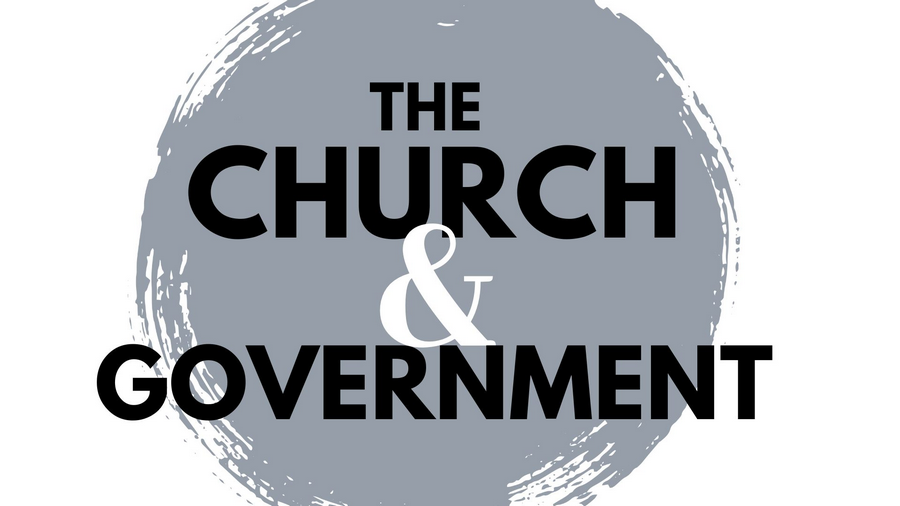When we think about the relationship between the church and the government in our modern context, what often comes to mind is the clash of worldviews that comes between us and the government’s desire to hinder the advancement of the very gospel that the church is commanded to proclaim to all people. While that is perhaps often the case in this fallen world, even manifesting as blatant persecution in some countries, Romans 13 teaches us nonetheless what the role of government is intended to be. Even more importantly, it reminds believers not only that we are to submit, but also why we are commanded to do so. The text does not disregard the sinful nature of men in positions of authority, but rather teaches us that we can indeed live peacefully with them as law-abiding citizens in spite of their sinfulness. As our theme text of this series points out, Christians have a higher calling when it comes to why we submit to our governing authorities.
Let us once again turn to Romans 13:
“Every person is to be in subjection to the governing authorities. For there is no authority except from God, and those which exist are established by God. Therefore whoever resists authority has opposed the ordinance of God; and they who have opposed will receive condemnation upon themselves. For rulers are not a cause of fear for good behavior, but for evil. Do you want to have no fear of authority? Do what is good and you will have praise from the same; for it is a minister of God to you for good. But if you do what is evil, be afraid; for it does not bear the sword for nothing; for it is a minister of God, an avenger who brings wrath on the one who practices evil. Therefore it is necessary to be in subjection, not only because of wrath, but also for conscience’ sake. For because of this you also pay taxes, for rulers are servants of God, devoting themselves to this very thing. Render to all what is due them: tax to whom tax is due; custom to whom custom; fear to whom fear; honor to whom honor.” (Romans 13:1-7, emphasis added).
As we discussed in the previous week, avoiding punishment is certainly a reasonable motivation to have for submitting to the government. But as we also found, God has given the state this authority for the purpose of restraining evil in a society, knowing full well that a society made up of predominantly unregenerate people would otherwise live in the kind of lawlessness that existed prior to the Flood, a time when “the earth was corrupt in the sight of God, and the earth was filled with violence” (Genesis 6:11). If even the unregenerate are restrained from doing more evil by the presence and authority of the state, how can Christians obey the laws of the land in a way that is different? We are, after all, the ones who have been called out of the world. Paul gives us the answer in verse 5 of Romans 13: we are to be in subjection to our governing authorities “for conscience’ sake.”
What does this phrase mean? To understand this phrase, let’s define what the conscience is. According to Scripture, God has given His law to all men. Even the Gentiles “who do not have the law, by nature do the things in the law, these although not having the law, are a law to themselves, who show the work of the law written in their hearts, their conscience also bearing witness” (Romans 2:14-15). In essence, it is the “courtroom in our minds” that allows us to distinguish right from wrong. Though society shapes it, it is given to each person by God, thus on the Day of Judgement, everyone is without excuse (Romans 1:20). However, because of the Fall, our consciences often do not function properly. When we suppress the truth in unrighteousness (Romans 1:18), we are effectively searing our consciences to the point where we no longer feel shame upon having our sinful thoughts and desires. This is the natural state of the unregenerate person: such an individual could care less about having a good conscience in any way unless there is some kind of external motivation, whether it is facing consequences for illicit activity or receiving praise from men for good behavior.
But this is not you, Christian. This used to describe you, but you have been called out of darkness into His marvelous light (1 Peter 2:9). You are set apart from the world, now part of God’s holy nation, a nation full of those who have the mind of Christ (1 Corinthians 2:16). Rather than suppressing our consciences, we seek to avoid violating them! In fact, that is Paul’s entire point in Romans 14 and 1 Corinthians 8. It is with this renewed conscience, informed by the illuminating work of the Holy Spirit, that we fulfill what verse 5 of Romans 13 instructs us to do.
What does it look like when we submit to our government “for conscience’ sake”? When we stop at a red light, we are not merely seeking to avoid getting pulled over by a police officer; we are first and foremost honoring Christ in our submission as well as recognizing that God ordained the creating and enforcement of traffic laws for the safety of drivers and pedestrians. What if you desire to build a large shed in your backyard but are met with building permit requirements from your city? Surely you want to avoid getting fined or being forced to remove your structure for violating building codes, but when you submit “for conscience’ sake,” you are ultimately serving your true Master, Jesus Christ, praising Him for providentially and gracefully allowing your local authorities to devise methods of ensuring structural integrity in your shed (with building material that He ultimately created, by the way) as well as safely operating electrical systems. John Calvin made a similar observation in his commentary on Romans 13, and wrote the following as a paraphrase of verse 5:
“We must not only obey, because we cannot with impunity resist the powerful and those armed with authority, as injuries are wont to be borne with which cannot be repelled;" but we ought to obey willingly, as conscience through God's word thus binds us.
We obey because we know it is the right thing to do. We trust our sovereign God through our obedience to governing authorities, and — when applying a biblical worldview — we as Christians have the opportunity to outwardly express the joy of the Lord that is in our hearts. The world is watching us; make no mistake about it. Remember that “by doing good you may put to silence the ignorance of foolish men” (1 Peter 2:15). While it may not always be the easy thing to do, it is the path of wisdom. “The king’s favor is toward a wise servant, but his wrath is against him who causes shame” (Proverbs 14:35). Next week we will unpack the remaining verses of Romans 13:1-7 and talk more about the various ways we are called to submit to our government.

